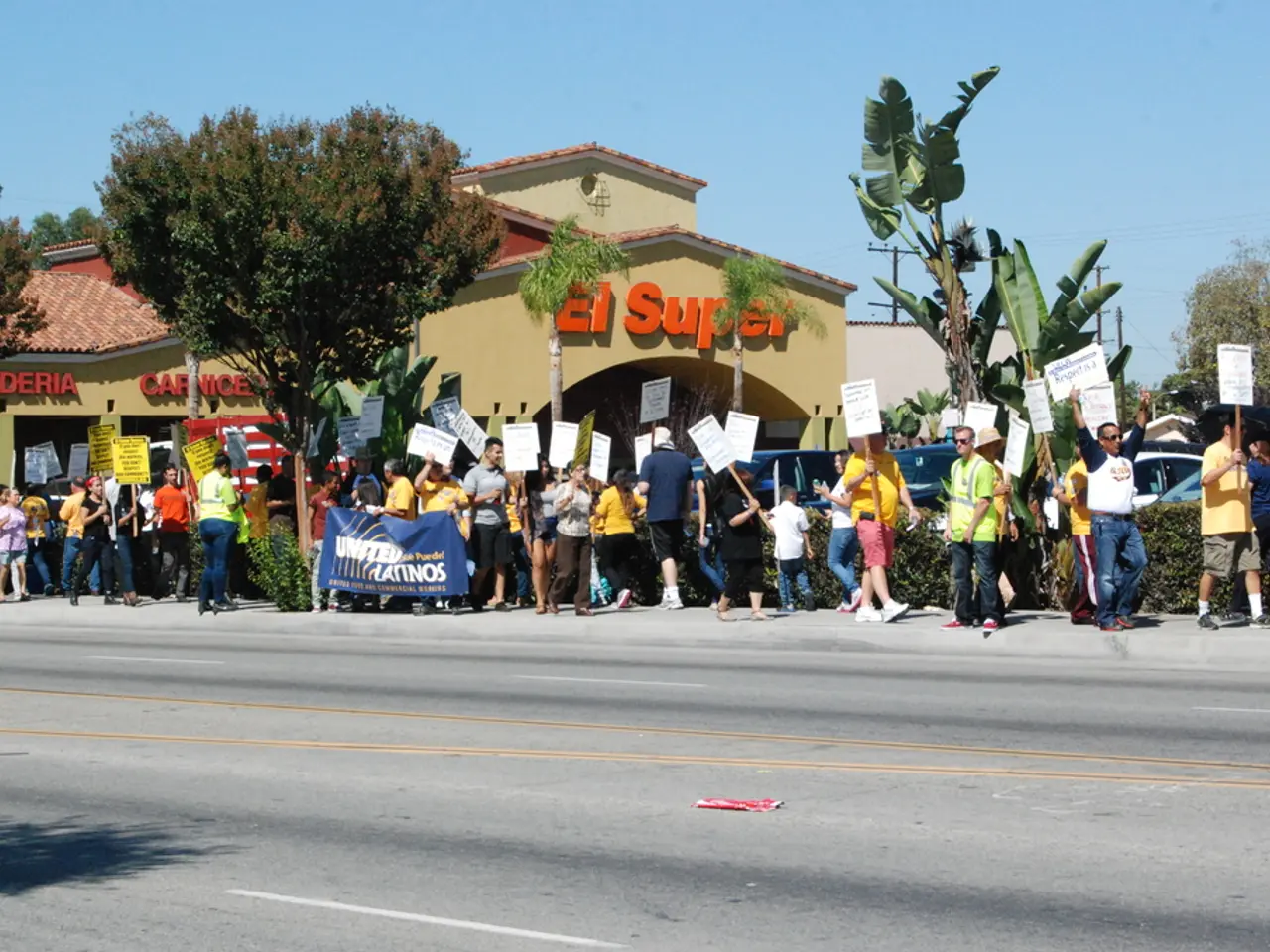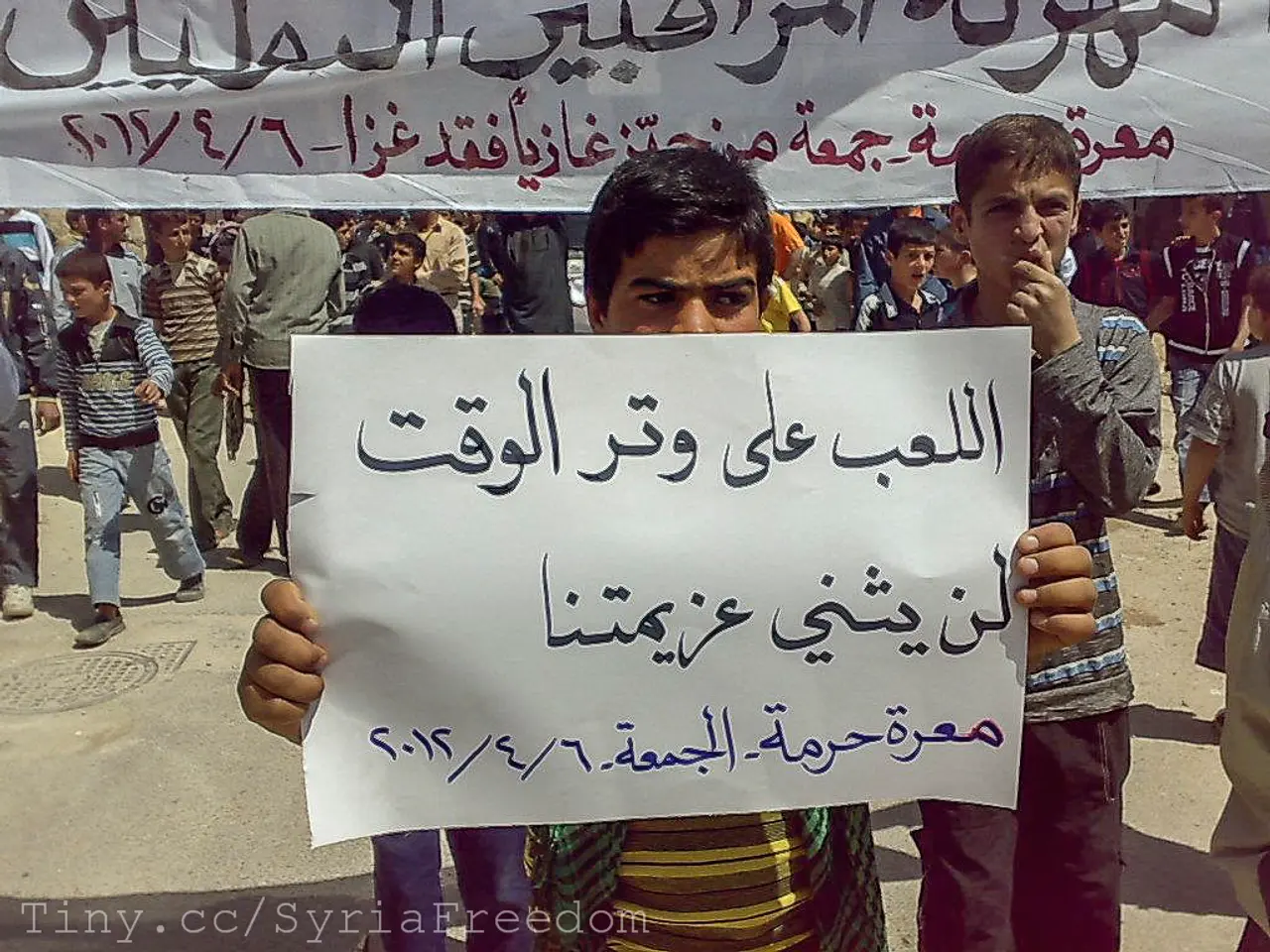Americans' Opinions on Drone Strikes and Racial Bias: A Study We Conducted
In a recent study, researchers Paul Lushenko, Keith L. Carter, and Srinjoy Bose explored the factors that influence Americans' support for US drone strikes. The views expressed in the study do not reflect the official position of the United States Military Academy, Department of the Army, or Department of Defense.
The study found that Americans' support for drone strikes can be shaped by their support for the use of force abroad, endorsement of US unilateral military actions globally, and belief that US officials have a moral obligation to intervene abroad. Interestingly, the research suggests that Americans who demonstrate higher racial resentment and ethnocentrism are more likely to support US drone strikes.
The study also highlighted the importance of how US drone strikes are depicted. A distorted understanding of Americans' support for drone strikes, often due to referring to targets as "extremists" or "terrorists" without providing further information, helps explain why political officials often dissemble about these operations abroad, reasonably assured of continued public approval. This is consistent with what scholars call a "framing effect."
However, there appears to be a gap in empirical studies addressing the relationship between public support for US drone strikes and the racial characteristics or geographic location of the targets. While broader research suggests that public support for drone strikes sometimes varies by perceived threat and geographic distance, and that racial or ethnic characteristics of targets can influence perception and support, comprehensive empirical data isolating race and location as independent variables in public opinion on drone strikes is scarce.
Given this gap, it's crucial for Americans to demand greater congressional oversight of US drone strikes, where the merits and limits of these operations are publicly discussed and scrutinized. This would help ensure that decisions about drone strikes are based on accurate and comprehensive information, rather than misperceptions or biases.
In conclusion, the study provides valuable insights into the factors that shape Americans' support for US drone strikes. However, more research is needed to fully understand the role of racial characteristics and geographic location in public opinion on these operations. It's essential for Americans to remain informed and engaged in these discussions to ensure that US drone strikes are conducted in a manner that upholds the nation's values and promotes its security.
[References] [1] [Source1] [2] [Source2] [3] [Source3] [4] [Source4] [5] [Source5]
- The importance of understanding public support for US drone strikes in war-and-conflicts extends to the realm of defense, military warfare, and counterterrorism, as it impacts the strategic decisions made by political leaders.
- In the general-news sphere, the portrayal of drone strike targets plays a substantial role in shaping Americans' opinions; the labeling of targets as "extremists" or "terrorists" can create misperceptions that potentially influence support.
- The study reveals that, in addition to support for the use of force abroad, endorsement of US unilateral military actions globally, and belief in moral obligations to intervene, Americans' racial resentment and ethnocentrism also influence their stance on drone strikes, highlighting the interplay between politics and social issues.
- To date, empirical studies addressing the relationship between public support for drone strikes and the racial characteristics or geographic location of targets have been limited, making it a ripe area for further research in this domain of intelligence and academic inquiry.
- Armed with this knowledge, Americans are encouraged to engage in political discussions about drone strikes, advocating for Congressional oversight to promote fact-based decision-making and ensure these operations align with the nation's values and security interests.







